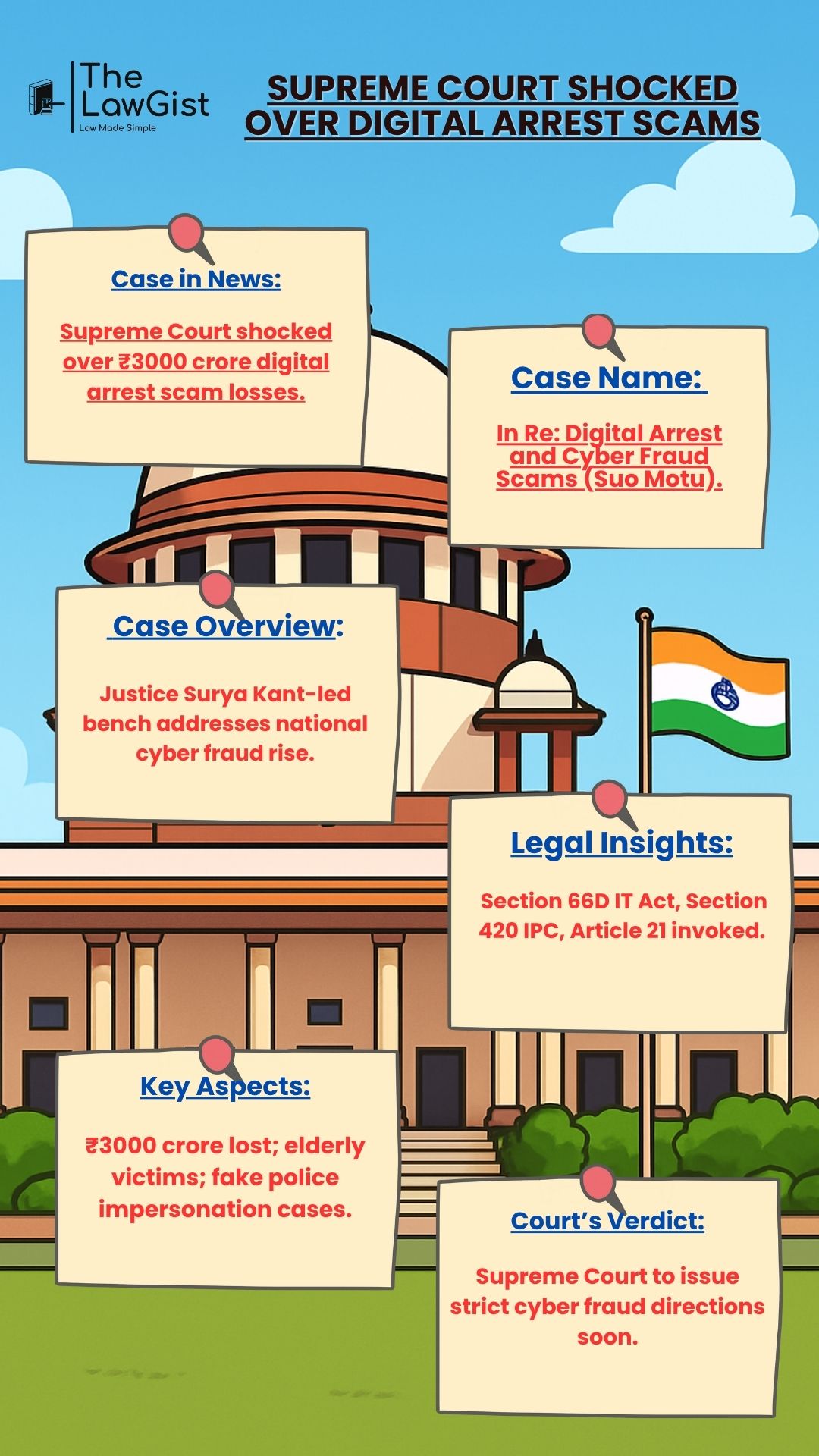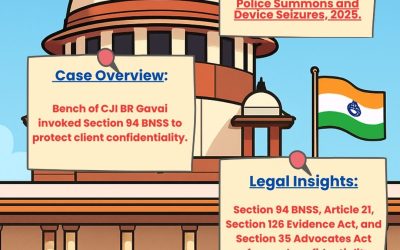
Supreme Court of India expresses shock over ₹3000 crore digital arrest scams; bench vows strong measures to protect citizens and ensure accountability under cybercrime laws.
Case in News :Supreme Court Shocked Over Digital Arrest Scams as ₹3000 crores lost nationwide; strict directions likely soon. |
Discover powerful Latin Maxims and simplify complex legal terms in seconds.
Case Overview :
Case Name : In Re: Digital Arrest and Cyber Fraud Scams (Suo Motu Writ Petition)
The Supreme Court of India, led by Justice Surya Kant and Justice Joymalya Bagchi, heard a suo motu case on the alarming rise of digital arrest scams . The bench expressed deep concern over reports revealing that victims across India have collectively lost around ₹3000 crore . These scams involve fraudsters posing as police officers or government officials, coercing victims especially senior citizens, to transfer money under false charges . The Court observed the urgent need for judicial intervention to prevent the erosion of public trust in digital governance .
Step into the world of justice withCourtroom Chronicles
Key Aspects :
The case highlights the growing menace of cyber frauds and impersonation crimes exploiting citizens through digital means .
- Nearly ₹3000 crores defrauded from citizens across India through fake law enforcement calls .
- Victims are mostly elderly individuals coerced through fear of criminal charges .
- The Court took suo motu cognisance following a complaint from a senior citizen couple in Haryana .
- The Centre proposed transferring all such investigations to the Central Bureau of Investigation (CBI) .
Legal Insights :
The Court examined relevant statutory and constitutional provisions ensuring protection against cybercrime and digital frauds .
- Section 66D, Information Technology Act, 2000 – Penalises cheating by impersonation using computer resources .
- Section 420, Indian Penal Code (IPC) – Punishes cheating and dishonest inducement .
- Article 21 of the Constitution of India – Guarantees the right to life, dignity, and privacy, endangered by online scams .
- Information Technology (Intermediary Guidelines and Digital Media Ethics Code) Rules, 2021 – Mandate platforms to prevent misuse of digital services for fraudulent activities .
Court’s Verdict :
The Supreme Court of India termed the situation “shocking” and vowed “iron-hand” action against perpetrators . It directed agencies to submit detailed reports and indicated that stringent directions would follow to curb cyber frauds nationwide . The matter remains under active consideration, with possible orders on coordination between States, CBI and cybercrime cells .
Source – Supreme Court of India
Read also – Indian Penal Code (IPC)
The LawGist ensures exam success with quality notes—TPL, Current Affairs, Recent Judgments, and more. Backed by trusted resources and videos, The LawGist is every aspirant’s first choice. Discover more at thelawgist.org







